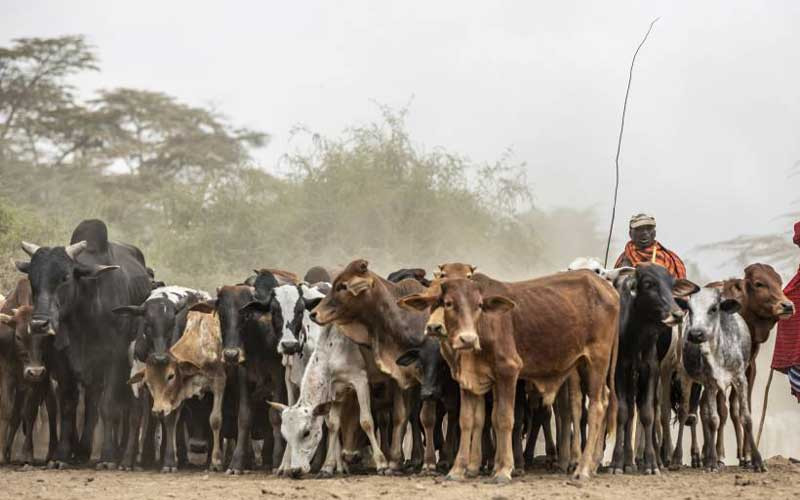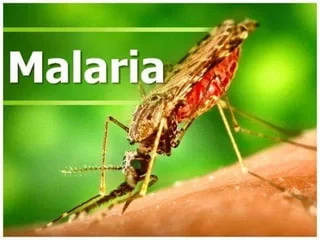
AFRICA is contending with a climate crisis it did not create.
The continent is also least responsible for reducing greenhouse gas emissions, having historically produced just a tiny fraction.
And when climate disasters such as cyclones in Mozambique and Malawi, or droughts in the Horn of Africa strike, the subsequent humanitarian response diverts vital funds that could have otherwise supported public health, education and food security.
Such extreme events take an enormous toll on Africa’s primary industries, including crop and animal agriculture, with the livestock sector alone losing US$2 billion from recurring droughts.
It would, therefore, be preposterous to hold any of these sectors directly to account for curbing climate change when they provide food and livelihoods for hundreds of millions amid the growing climate risks.
Yet this is precisely the scenario that unfolds when the global climate debate around the role of livestock results in calls for blanket reductions of herd numbers and wholesale dietary shifts away from meat.
Broad campaigns for a transition away from animal agriculture and towards plant-based diets without qualifying regional differences overlook the severe levels of undernutrition in parts of the world caused by inadequate intake of animal-source foods.
This risks creating the impression that an African, who consume as little as 7kg of meat a year, must give up vital yet underconsumed sources of protein and micronutrients to mitigate emissions mostly generated elsewhere.
- Open letter to President Mnangagwa
- Feature: ‘It’s worse right now than under Mugabe’: Sikhala pays the price of opposition in solitary cell
- Masvingo turns down fire tender deal
- Human-wildlife conflict drive African wild dogs to extinction
Keep Reading
It is critical that regional and even national distinctions are made when making the case for dietary and production changes.
Meat consumption and production practices vary enormously around the world.
Where meat is over-consumed and produced unsustainably, we recognise this needs to change — not only to bring down emissions, but to improve health standards.
But applying this argument globally misses the livestock sector’s outsized and fundamental role in the development of low-income countries, including those across Africa.
And this blind spot is made all the more unjust by the fact that those in the Global North have both driven up global emissions and failed to meet commitments to Africa for climate-related development finance.
Livestock keeping offers African countries a gateway to the food security and economic growth enjoyed elsewhere, while also enabling the climate adaptation made necessary largely by the actions of others.
Investing more climate funding to support Africans farmers and animals adapt to new extremes is an enormous opportunity for a climate-resilient economy.
And it is also a matter of climate justice.
Unlike many other parts of the world, Africa is facing exponentially more mouths to feed in the decades ahead as climate change makes farming harder and riskier than ever.
By 2050, a quarter of the global population will be Africans, who are already suffering from the highest prevalence of hunger and malnutrition in the world.
From 2021 to 2022, an additional 11 million Africans faced hunger, with 57 million more slipping into food insecurity since the COVID-19 outbreak began.
For many Africans, meat, milk and eggs are a precious and infrequent addition to our diets, providing a dense supply of nutrients and energy that are not as readily available from other foods or supplements.
Africa’s rising population is also an increasingly youthful population, and the majority of young people in sub-Saharan Africa already work in agriculture and in rural areas.
Livestock will remain fundamental to Africa’s economic development, contributing up to 80% of agricultural gross domestic product.
As the sector adapts to new demands and circumstances, it also has the opportunity to develop differently to the livestock sector in industrialised countries.
At present, half of Africa’s meat and milk is produced by pastoralists, whose animals roam and graze the countryside, providing valuable services for natural ecosystems and biodiversity.
However, changes in drought cycles are resulting in shortages of animal feed and fodder, which leads to food and economic insecurity, instability and even conflict among rural communities.
Solutions already exist in Africa that allow rural communities to continue to benefit from raising livestock in spite of climate extremes.
These include more climate resilient indigenous cattle breeds and varieties of livestock forages, better climate information services, training and services for farmers and more sophisticated infrastructure and markets.
Moreover, these innovations also help to make African livestock systems more efficient, meaning less loss and waste, and lower levels of emissions.
But the continent urgently needs more climate finance to help the entire livestock sector access these new developments.
Africa needs to be able to realise the full potential of its livestock sector as a driver for development, and this has been recognised by the African Union in its Agenda 2063 as well as the Comprehensive Africa Agriculture Development Programme and the Livestock Development Strategy for Africa.
For the most part, the continent does not contend with the same overconsumption, industrialisation and carbon footprints that drive the agenda in the Global North.
Because of this, the opportunities that livestock present for Africa should be fully recognised – and fully funded. - Dr Huyam Salih/ Professor Appolinaire Djikeng
No to environmentally hazardous vehicles
IN response to the article titled Carbon conspiracy, tussling bearing no solutions, at least here in the far West, a large number of drivers of superfluously huge and over-powered, thus gas-guzzling vehicles consider their machines to be a basic human right.
It terrifies them to even contemplate a world in which they cannot readily fuel that right. And comparatively quiet electric cars are no substitute.
We will continue to see parked vehicles idling for many minutes in moderate weather temperatures.
There will also be the odd choking-thick-exhaust-spewing vanity vehicle, a metallic beast with the signature superfluously very large body and wheels that don’t at all appear used for work or family transport.
It’s no longer prudent to have so much of society, especially our primary modes of transportation, reliant on traditional sources of energy.
But industry and fossil-fuel friendly government can tell when a very large portion of the population is too overworked, worried and even angry about food and housing unaffordability for themselves or their family — all while on insufficient income — to criticise the industry [et cetera] for whatever environmental damage their policies cause/allow, particularly when not immediately observable.
Even as bone-dry-vegetation regions uncontrollably burn, mass addiction to fossil fuel products undoubtedly helps keep the average consumer quiet about the planet’s greatest polluter, lest they feel and/or be publicly deemed hypocritical. It must be convenient for the industry.
But the world — very much including Western nations — desperately needs to behave smarter with vehicular fuel consumption.
Therefore, all need to forgo purchasing the most gratuitously environmentally hazardous vehicles. - Frank Sterle Jr






